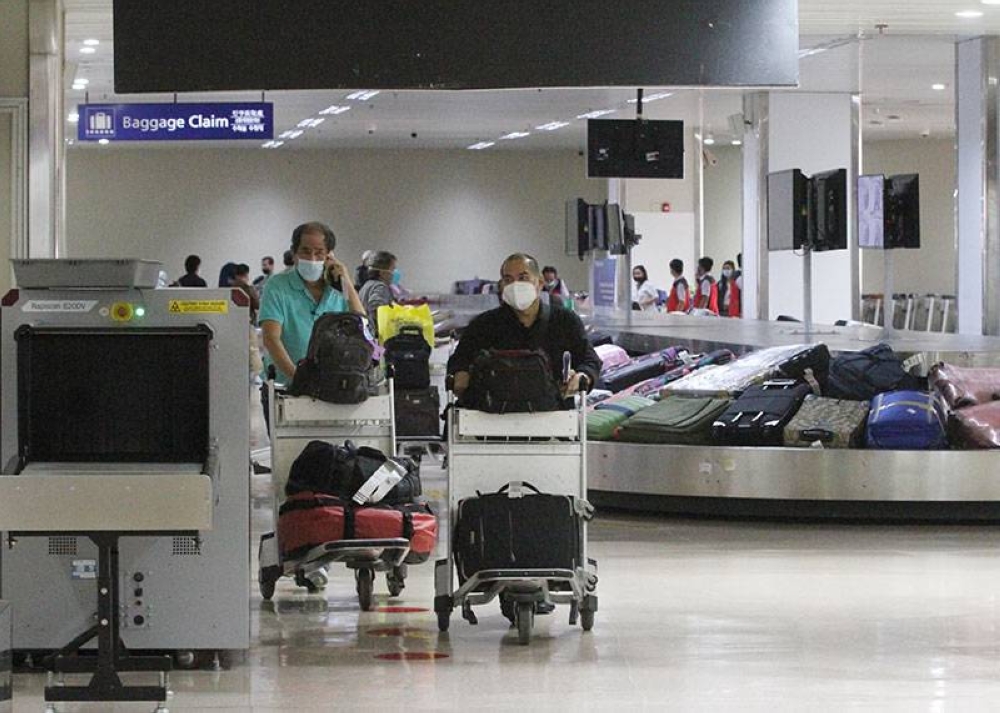Modern slavery threatens OFWs, national economy | The Manila Times

THE recent United Nations report on the rising incidence of modern slavery should be a concern for the Philippines, where remittances from overseas Filipino workers (OFWs) drive growth. Besides their economic contribution, OFWs comprise an important political sector, and they have been called heroes for bearing high social costs in choosing to work abroad.
The UN study released last week said the number of people caught up in forced labor and forced marriages went up by 10 million worldwide between 2016 and 2021. That was a setback, as the UN hoped to eradicate all forms of modern slavery by 2030. The report also mentioned that by the end of last year, some 28 million were in forced labor and about 22 million were in marriages that they unwillingly went into.
Obviously, the problem is global, but the part that should concern the Philippines was the reference to migrant workers. According to the UN study, migrant workers were three times more likely to be in situations of forced labor compared to non-migrant workers.
More than 40 percent of migrant workers around the world originate from Asia, about 115 million as of 2020, based on a source citing the International Organization for Migration. Of that number, about 20 percent come primarily from just six countries, including the Philippines. The others are China, Bangladesh, Pakistan and Afghanistan.
High expectations
Fortunately, practically everyone in the Philippines cares for OFWs. Government policies, for instance, often factor in OFW issues and concerns. And local media, which are private, are always on the lookout for their safety and welfare when covering foreign news.
Also, the latest addition to the government bureaucracy is the Department of Migrant Workers (DMW), headed by a longtime champion of OFW rights, Secretary Susan “Toots” Ople. With her leading the newly minted DMW, there should be no learning curve in identifying priorities, crafting strategies and implementing them.
She has assembled a “dream team” to help her look after OFWs. “The DMW's dream team is now in place, and we vow to serve our OFWs faithfully and with utmost professionalism,” Ms. Ople told the media. “Together, we will make the DMW a secure home for our OFWs and their families.”
These reassurances, along with the competencies of those in charge of OFW affairs, create an unintended challenge for the government. That is, they elevate public expectations. If the UN can suffer setbacks, so can any single government.
Still, the Marcos team seems more than capable and even grounded in its approach to migrant workers. In several interviews, Ms. Ople explained that the government's priority is to foster a better economic environment within the country, so that Filipinos are less inclined to seek work overseas. But she also said that it would be harmful to erect high barriers to overseas placement, as that might drive people toward illegal recruiters and human traffickers.
Still, the DMW might want to review placement policies regarding unskilled workers, particularly those recruited as domestic helpers. They seem more prone to exploitation and abuse. By comparison, Filipino professionals, like nurses, have added layers of protection offered by institutional employers and professional groups. Of course, nothing is full-proof.
On a related note, the DMW secretary seems inclined to broaden the definition of human trafficking. As expected, criminals change tactics to avoid drawing attention from the authorities. Law enforcers need to adapt quickly or better yet, anticipate the loopholes that traffickers might exploit.
Also, coordinating with other government offices will be a major task for the DMW. It will need to work with the Department of Labor, the Department of Foreign Affairs, the Commission of Filipinos Overseas (CFO) and various law enforcement agencies. The CFO, which is attached to the Office of the President, is the agency looking after millions of Filipino migrants, including those married to foreigners.
On top of all that, local authorities also need to coordinate with their counterparts in foreign governments. That, too, will be critical.
Protecting OFWs requires, to use a cliché, a whole of nation approach. And the fight against modern slavery is a global effort.
This “Eyes on Trafficking” story is reprinted from its original online location.
 ABOUT PBJ LEARNING
ABOUT PBJ LEARNING
PBJ Learning is a leading provider of online human trafficking training, focusing on awareness and prevention education. Their interactive Human Trafficking Essentials online course is used worldwide to educate professionals and individuals how to recognize human trafficking and how to respond to potential victims. Learn on any web browser (even your mobile phone) at any time.
More stories like this can be found in your PBJ Learning Knowledge Vault.
EYES ON TRAFFICKING
This “Eyes on Trafficking” story is reprinted from its original online location.
ABOUT PBJ LEARNING
PBJ Learning is a leading provider of online human trafficking training, focusing on awareness and prevention education. Their interactive Human Trafficking Essentials online course is used worldwide to educate professionals and individuals how to recognize human trafficking and how to respond to potential victims. Learn on any web browser (even your mobile phone) at any time.
More stories like this can be found in your PBJ Learning Knowledge Vault.
